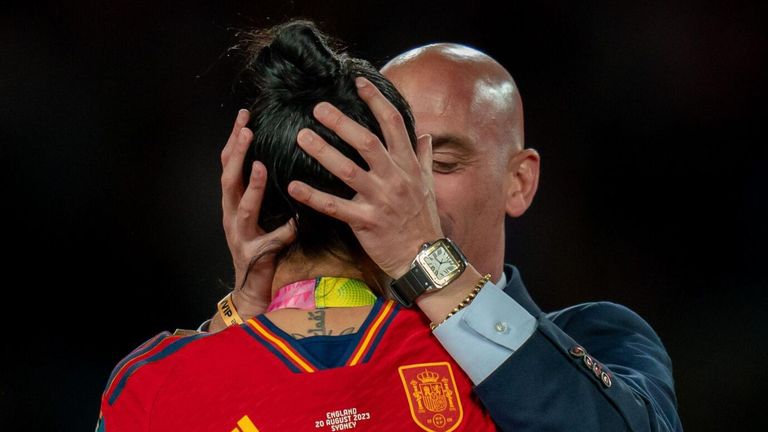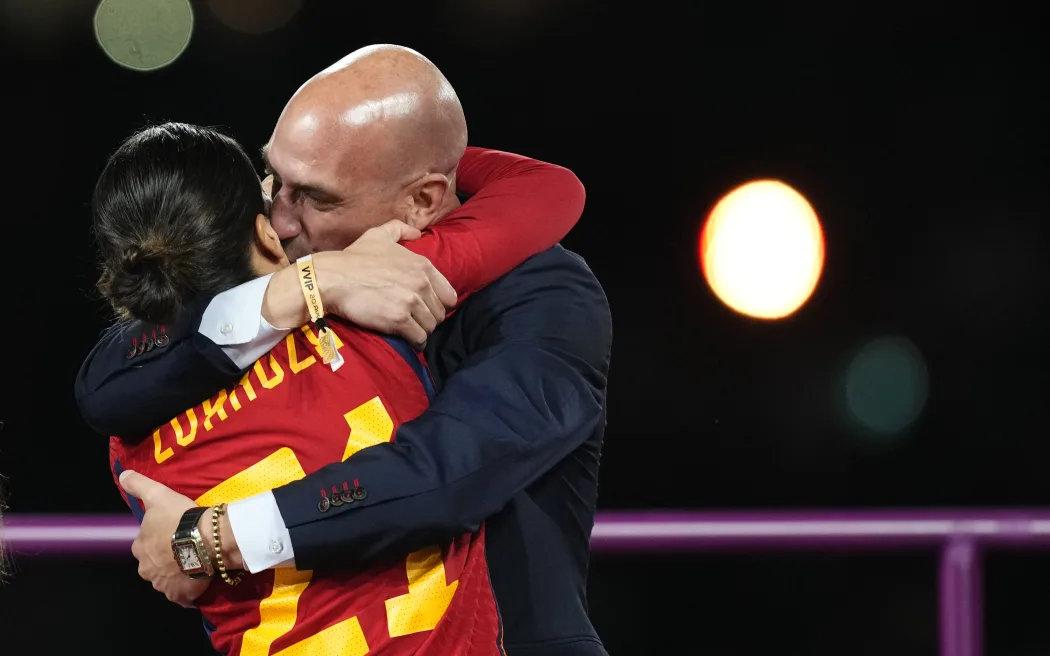
The former president of Spain’s football federation, Luis Rubiales, goes on trial Monday, accused of sexual assault for kissing player Jenni Hermoso without consent—an incident that has fueled broader discussions on sexism and consent in sports.
Hermoso, who currently plays club football in Mexico, is expected to testify as a witness on the opening day of the trial, which will run until February 19.
The controversy dates back to the 2023 Women’s World Cup final in Sydney, where Spain secured victory over England.
As the team received their medals, Rubiales grabbed Hermoso’s head and kissed her on the lips. While he maintained that the kiss was consensual, Hermoso publicly stated otherwise.
The incident ignited protests and demands for Rubiales’ resignation, with Spanish Prime Minister Pedro Sánchez weighing in, stating that the kiss demonstrated that “there is still a long way to go when it comes to equality and respect between women and men.”
Initially defiant, Rubiales dismissed criticism as a “witch-hunt driven by fake feminism.” However, he later stepped down from his role before facing formal legal charges.
Prosecutors are seeking a one-year prison sentence for Rubiales on sexual assault charges.
Additionally, they are calling for a one-and-a-half-year sentence for coercion, alleging he pressured Hermoso into publicly claiming the kiss was consensual. Rubiales has denied all accusations.
Three of his former colleagues—World Cup-winning coach Jorge Vilda, ex-federation marketing head Rubén Rivera, and former sporting director Albert Luque—are also on trial for allegedly aiding in the coercion. All three deny any wrongdoing.
Among those following the trial is Isabel Fuentes, one of Spain’s pioneering female footballers from 1971.
She describes the controversy as “very sad” because it overshadowed Spain’s historic World Cup victory, which she says brings her to the verge of tears.
“We would have loved to experience something like that, but we weren’t allowed to,” she reflects. “These players won it for us. They have lived out our dreams.”
Fuentes recalls playing under Francisco Franco’s dictatorship when Spain’s women’s team was not even permitted to wear the national flag on their jerseys.
“The regime said, ‘We don’t want you to play football, but we’ll just ignore you,’” she recalls. “And the federation put all manner of obstacles in our way.”

Like many fans, she worries about the damage the Rubiales scandal has done to Spain’s football reputation.
She was also appalled by footage of Rubiales celebrating Spain’s World Cup win by grabbing his crotch—just feet away from Queen Letizia.
However, younger players, such as Belén Peralta, focus on the progress women’s football has made rather than dwelling on the scandal.
Peralta, who plays for third-division club Olimpia Las Rozas, notes a growing shift in support for the women’s game.
“When I was younger, girls playing football was kind of strange. You were told, ‘Oh, that’s for boys,’ or ‘That’s not a girl’s thing,’” she says. “Nowadays, you tell someone, ‘I’m a footballer,’ and it’s so cool and attractive.”
Her teammate, Andrea Rodríguez, shares her perspective, acknowledging that while sexist comments still surface occasionally, attitudes are largely evolving.
“People are more open-minded now,” she says.
Source-BBC





